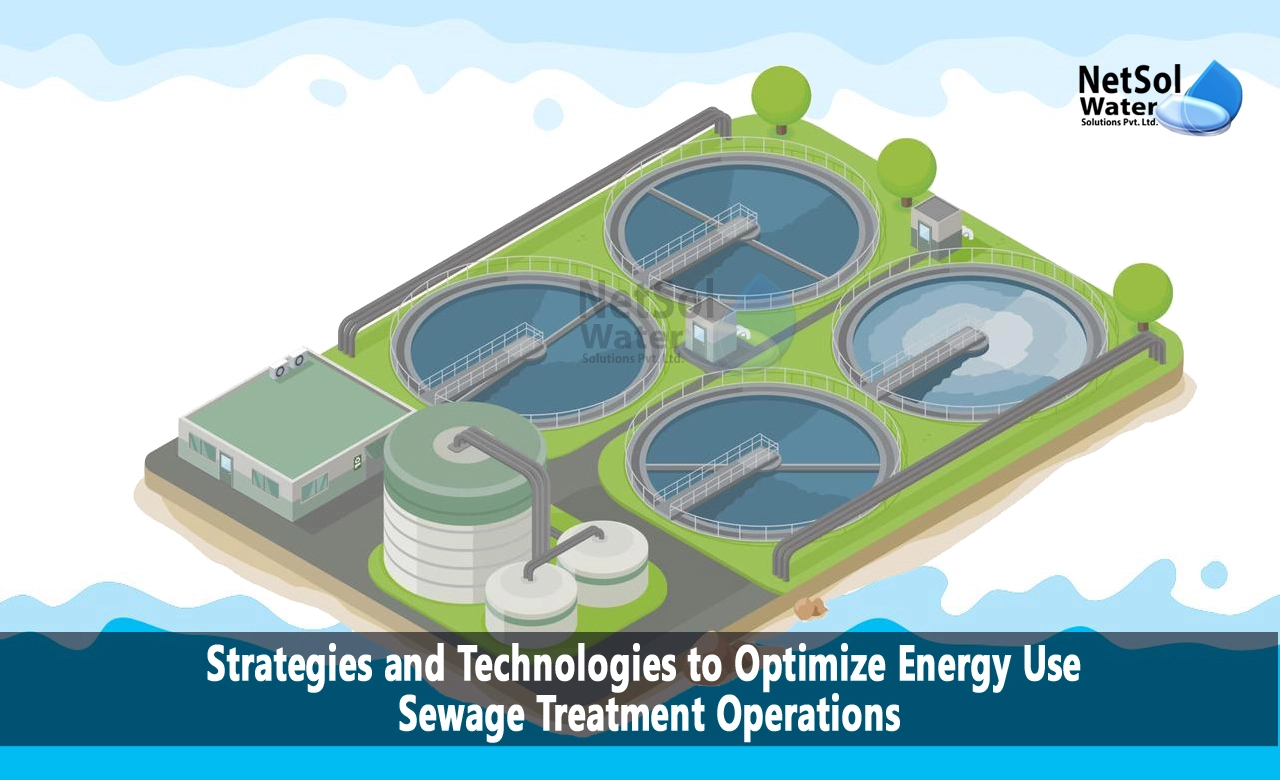Strategies and Technologies to Optimize Energy Use STP Operations
Sewage treatment is an energy-intensive process that requires optimization to reduce costs and environmental impact. As populations grow and regulations tighten, wastewater facilities face increasing pressure to maximize energy efficiency. This blog examines strategies and technologies to optimize energy use across sewage treatment operations.
Strategies and Technologies to Optimize Energy Use
1- Pretreatment
The initial stages of wastewater treatment focus on removing large debris and grit through screens and sedimentation tanks. Ensuring adequate screen maintenance and optimizing grit removal helps minimize energy demands in subsequent treatment phases. New self-cleaning fine screens with improved capture rates can handle higher flows with less frequent cleaning. Aerated grit tanks use less energy than mechanical equipment and are preferred for newer plants. Monitoring grit levels and optimizing removal frequency balances energy use with protecting downstream processes.
2- Aeration and Activated Sludge Process
The activated sludge process, which uses aeration to spur microbial breakdown of organics, is the most energy-intensive treatment phase. Fine bubble diffuser systems provide efficient oxygen transfer for aeration. New diffuser membranes with higher oxygen transfer rates can cut energy needs by over 20%. Introducing interceptor tanks before aeration evens out flows and allows using fewer, higher-efficiency blowers. Monitoring dissolved oxygen (DO) and controlling aeration to meet varying oxygen demand optimizes energy instead of over-aerating. Implementing DO or ammonia-based aeration control systems ties aeration to real-time loading. Aerating multiple smaller tanks stages versus one large tank allows shutting down unused sections. Optimizing solids retention time and reducing return activated sludge recycles also minimizes aeration needs.
3- Solids Handling
Handling solids generated during treatment requires pumping, thickening, digestion, and dewatering prior to disposal. Anaerobic digestion produces methane gas, which can offset purchased electricity and heating fuels. New high-efficiency cogeneration systems maximize energy capture from biogas. Pre-thickening solids before digestion reduces tank volumes. Better monitoring and mixing in digesters enhances gas production. Centrifuges provide fast solids dewatering but require more power than belt filter presses. Screw presses achieve modern cake dryness levels with much lower energy input. Where practical, capturing waste heat from dewatering for digester heating saves natural gas. Solar drying beds are an energy-free dewatering option in suitable climates. Overall, optimizing solids capture, stabilization, and disposal minimizes energy demands while maximizing resource recovery via biogas generation.
4- Advanced Treatment Processes
Tertiary treatment using membranes, advanced oxidation, or other technologies allows water reuse or safe discharge. While more intensive than primary/secondary methods, optimized process design and precision monitoring can reduce energy needs. Submerged membrane bioreactors eliminate pumping between tanks, while precision pressure and air scouring control reduces aeration. UV disinfection uses less energy than chlorine if doses are minimized. Energy recovery devices on reverse osmosis systems regain up to 75% of input power. Advanced controls tailor all these processes to actual loading, minimizing energy instead of overtreating.
Conclusion
With growing pressures on wastewater infrastructure, optimizing energy efficiency across treatment operations is crucial. Strategies like targeted pretreatment, precise aeration control, cogeneration, and adjustable press dewatering provide significant energy savings. Process innovations such as efficient diffusers, temperature-phased digestion, and low pressure membranes offer additional gains. Overall, the most energy-efficient plants closely monitor flows and loading, adjust processes accordingly, maximize resource recovery, and implement multiple efficiency measures. With proper planning, even older plants can substantially improve energy performance. Reducing wastewater energy demands through such optimization and innovation will continue decreasing the environmental impacts of this essential municipal service.
Do you need an advice or assistance on selecting the best water and waste water treatment unit? We have solutions for all your problems!
Let us know your problem, our experts will make sure that it goes away.
For an assistance or related query,
Call on +91-965-060-8473 Or write us at enquiry@netsolwater.com



